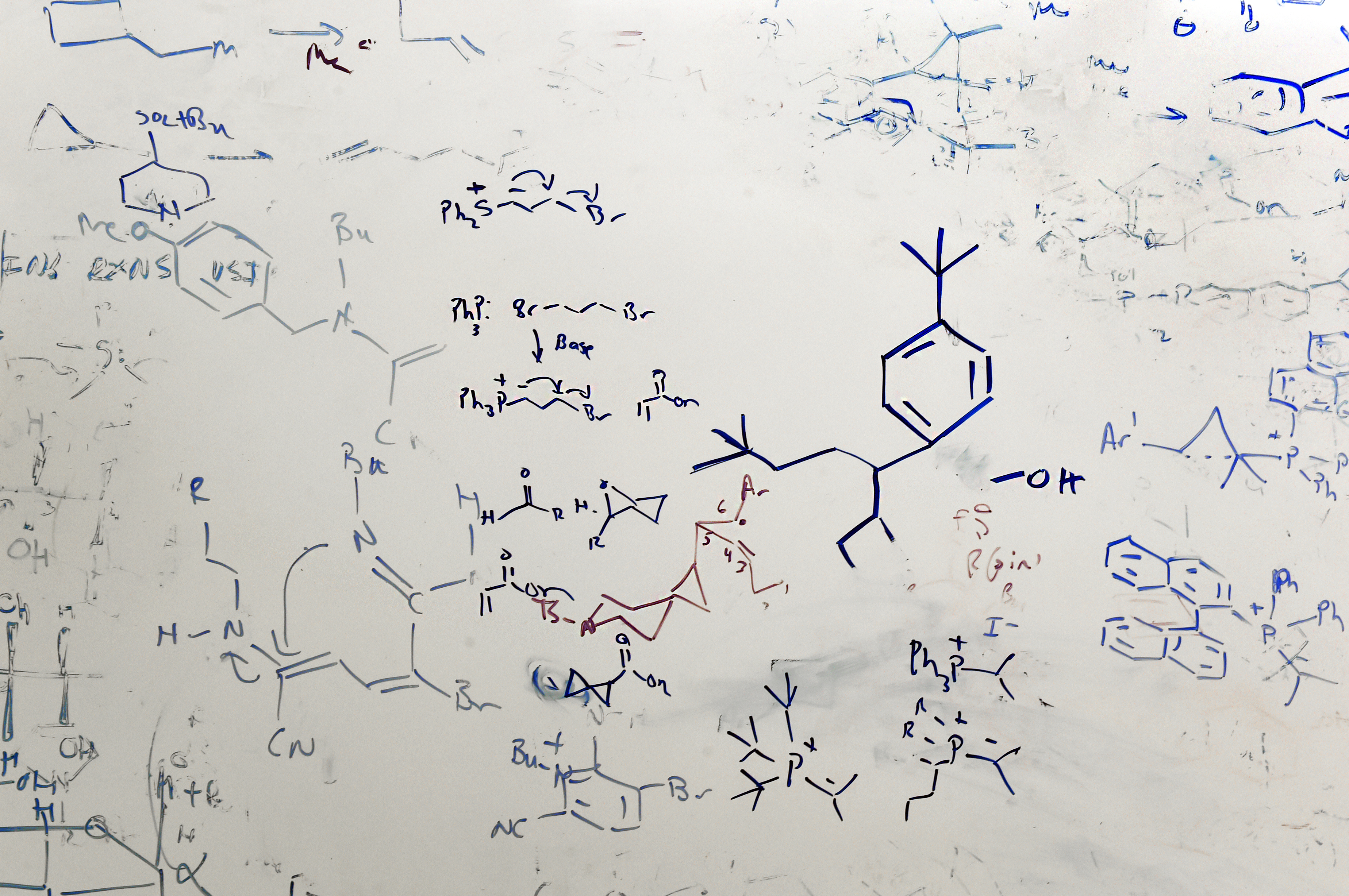May 29, 2024 | By Dave DeFusco
Malaria cases and deaths, after declining to historic lows in the past 10 years, are rising as mosquitoes evolve to survive insecticides. Joining the fight against the scourge of malaria-carrying mosquitoes is Sidney Wilkerson-Hill, a UNC assistant professor of chemistry, who was recently recognized as a 2024 Camille Dreyfus Teacher-Scholar by The Camille and Henry Dreyfus Foundation.
Wilkerson-Hill is one of only 18 recipients to be honored by the foundation this year. Faculty who are selected must be within the first five years of their academic careers, have created an outstanding independent body of scholarship and have demonstrated a deep commitment to education.
“It’s really surprising and exciting,” said Wilkerson-Hill, an organic chemist who focuses on developing pyrethroids, which are small-molecule pesticides used to combat mosquitoes and other insects. “This will make sure the students in my group will have what they need to do the science in a thriving research environment.”

Pyrethroids function by mimicking naturally occurring compounds found in plants and can be used to fight malaria-carrying mosquitoes like Anopheles gambiae, a species found primarily in sub-Saharan Africa. The Hill Group is working to make pyrethroids more stable when exposed to light, less harmful to helpful honeybees and less likely to be resisted by harmful insects.
“Small-molecule pyrethroids are one of our first lines of defense in preventing malaria globally,” said Wilkerson-Hill. “Thinking about how to combat malaria depends on our ability to understand how pyrethroids work.”
To achieve this, they are developing methods to make “orphaned cyclopropanes,” a type of chemical structure found in pyrethroids that Wilkerson-Hill calls a molecular triangle for how its three carbon atoms bond together. Cyclopropane synthesis plays a crucial role in developing new pyrethroids. These specific cyclopropanes are called orphaned because traditional methods for making cyclopropanes didn’t pay much attention to the way atoms are arranged in pyrethroid molecules. As a result, these cyclopropanes haven’t been developed as much in terms of chemical reactions
“Pyrethroids function as potent insecticides by binding to a cell’s ion channels,” said Wilkerson-Hill. “This binding action keeps the gates to proteins wide open, resulting in the unregulated flow of sodium ions into the cells that ultimately paralyzes and kills an insect. It’d be great if we could find ways to exploit some of the minute differences in these ion channels to obtain small molecules that target these receptors.”
The group is using three main strategies to obtain orphaned cyclopropanes: using boron to convert common cyclopropanes to their orphaned counterparts; using catalysis to develop fast and efficient methods for making a large number of cyclopropane molecules whose insecticidal activity has not been tested; and using a specific type of functional group called sulfones, which are used in organic synthesis and pharmaceuticals due to their stability to create the orphaned cyclopropanes.
“These methods not only help in making pyrethroids but also enable the discovery of new medicines containing cyclopropane,” said Wilkerson-Hill. “These reactions are important because they allow us to conduct investigations into how changes to the structure of cyclopropane rings can affect their ability to kill pests or act as a medicine. By understanding these relationships, scientists can design better molecules with improved performance and fewer side effects.”
Wilkerson-Hill hopes the Camille Dreyfus Teacher-Scholar award will remind people of the important role that science plays in their everyday lives.
“I like to remind people that science is critical to how society functions,” he said. “We’re going through an interesting time now where the scientific enterprise is being viewed with a lot of skepticism. I just want to reassure folks that at least in academia, we’re really just trying to answer fundamental questions and develop new techniques that will benefit society.”


